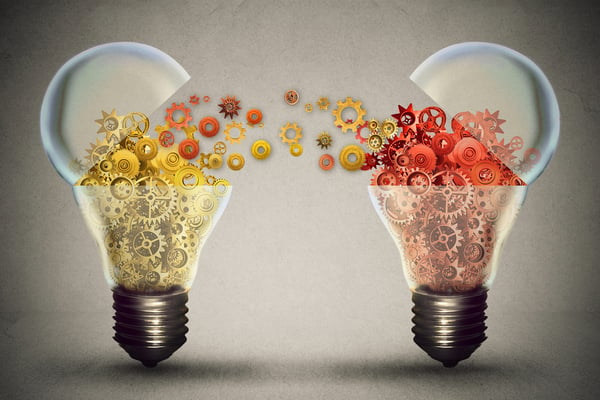Personal government: The vision of what comes after digital transformation
For the past several decades, gradual adoption of new technologies in society and digitalisation of public services has allowed many nations to increase efficiency and approval of public services. The maturity and impact of digitalisation, however, vastly differs based on how widely the society has adopted new technologies and services into everyday life.
In more advanced digital societies, being digital has become an innate property of public services themselves, setting both expectations and requirements for the government to make life easier and more efficient for its citizens. Young people already expect the state to be an active party that informs its citizens about various opportunities and enables them to manage everything quickly, efficiently and in a user-friendly way.
In these societies it has become evident that a data-based society, with digital infrastructure, and general trust towards digital services and the widely available skills required to support them are allowing nations to rethink how public services, and the mechanisms that provide them, work and what value they create for the society. Across those societies we are observing how high trust in digital services and high cooperation across the government brings about the emergence of new business models and citizen experience that outcompetes older service provision models.
We call this vision personal government, for several reasons.
First, one of the largest problems still to solve in public administration and service delivery is to provide equitable and high-quality public services in a sustainable way. Traditionally, only another human was able to render services in a way that also felt human. But now, we’re approaching a technological capability where we can surpass human capability to deliver high quality services, while also assuring renewal of services in a sustainable fashion. We have learned that by simplifying complex processes and by using technology intelligently we are able to not only increase public approval but also efficiency– at the same time.
Most of this requires turning the traditional view of government, it’s plethora of regulations, rules, authorities, and services inside-out to focus on what the citizen should experience – their data, their contextual opportunities, and obligations, and reducing or hiding away everything else.
We envision that the services will be accessible also to people who are not able to utilize regular digital channels or are not native speakers. We argue that services should be proactive, anticipating the need and in many cases render the service invisibly, without the user ever even knowing that service was rendered. Our past experiences in creating trust for the digital services have taught us that it is possible to create services that adjust to different individual beliefs and preferences towards data privacy and provide incentives that eventually nudge the citizen towards higher levels of trust. All of this will allow nations to re-imagine public services that will provide additional value, empowering their users with means that traditional services cannot.
Second, we want to emphasise that during the initial digital transformation of government, becoming digital was the point of emphasis. Now, while the personal government requires and evolves from the strong digital government foundation, the emphasis is on simply providing better public service experience and efficient public administration. In this, digital is the means to an end, not the point itself. Many organizations (including World Bank and OECD) call the equivalent evolutionary step from digital government era the GovTech era. We see personal government as the description for the outcome, and GovTech as the general description of the emerging ecosystem of solutions, services, and approaches to building personal government.
The journey towards the personal government is already on way in several societies, notably Estonia and Finland. The key ongoing discussions are about establishing services that enable citizen to retain control over their data and its usage to create trust. We discuss means to change the organization of public services from a government centric view into a citizen centric view.
We point out how modern approaches to platform services can be utilised to provide a seamless experience for the citizen to get the most suitable service and create a marketplace for service delivery that drives innovation. We discuss how AI will play an important part in providing efficiency and quality in service delivery in ways that current approaches struggle. In addition, we imbed the mindset that the renewal of services depends on also updating the way public services are developed and delivered.
All this will take years to become embedded as the norm in the everyday life of citizens. However, the first successes have been delivered and many more will follow soon.
We believe the personal government vision is relevant across societies. From mature nation states who have gone through the initial digital transformation and are looking to deliver more for less to their citizens, to less digitally mature nations, who by setting personal government as the goal, will be able to leapfrog more advanced nations; skipping expensive and time-consuming steps towards. This will be key to delivering the true promise of personal government; better and more efficient public services for the people.






